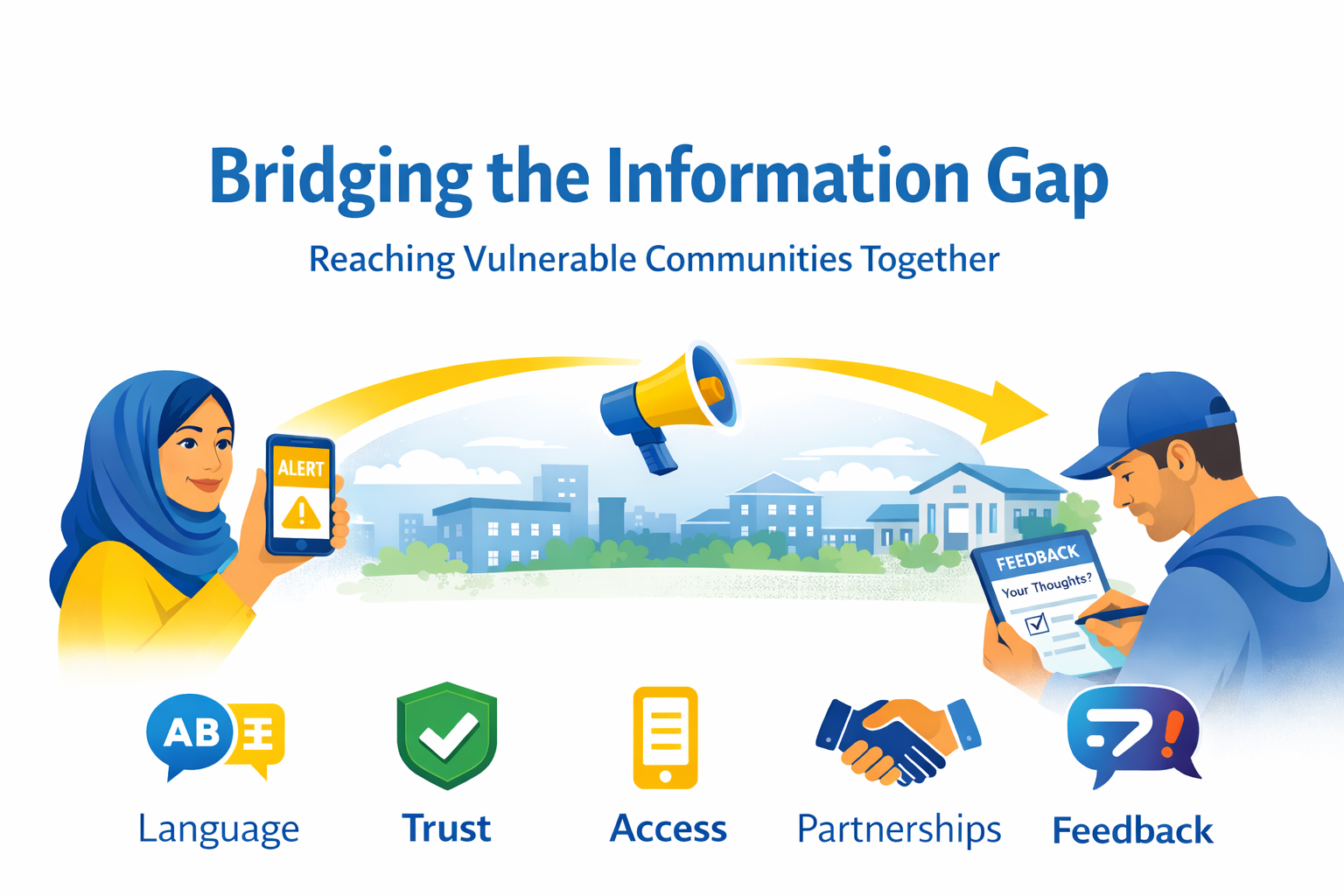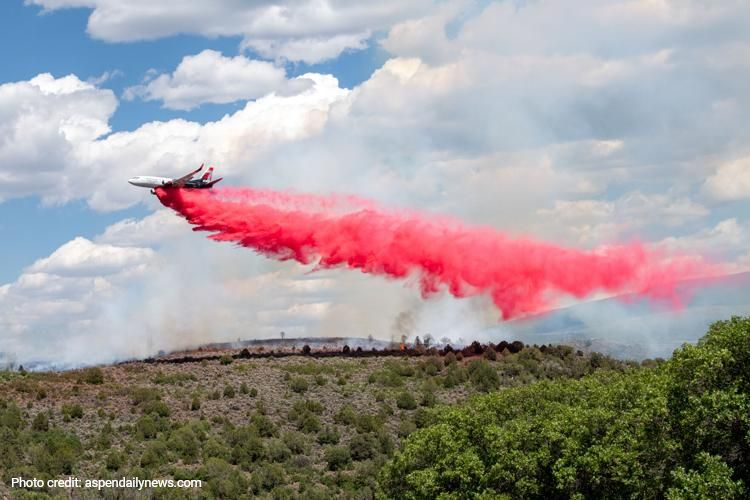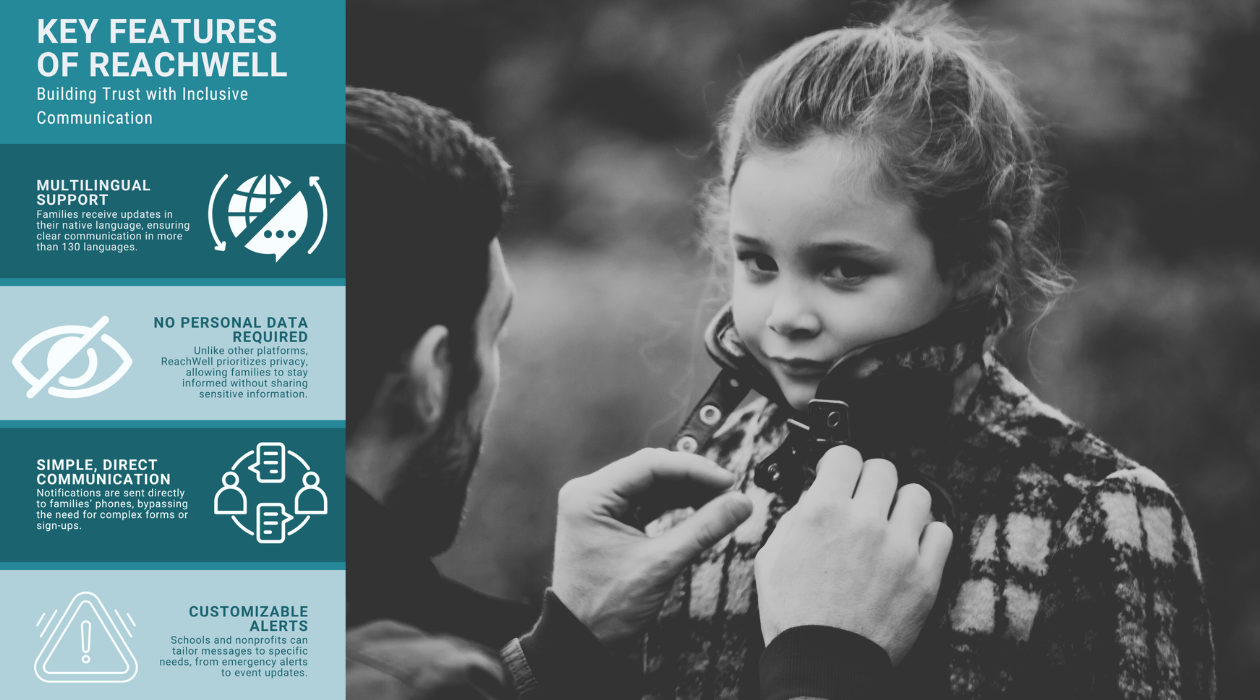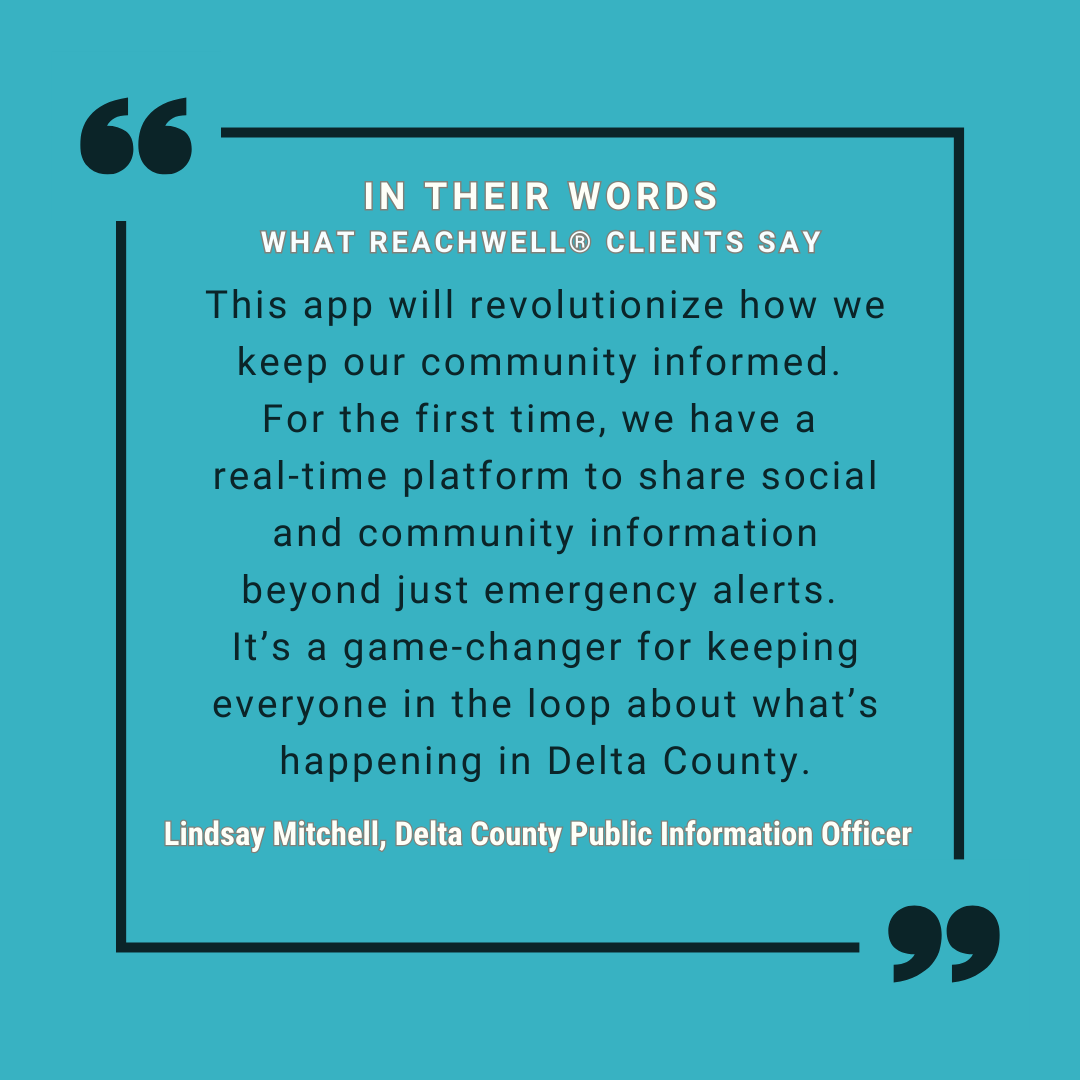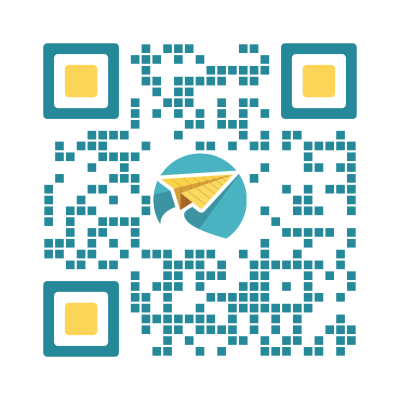Aspen Public Radio: New app offers Pitkin Alerts in 100 languages
Pitkin County unveiled a new app on Jan. 25 that will deliver Pitkin Alerts in 100 languages.
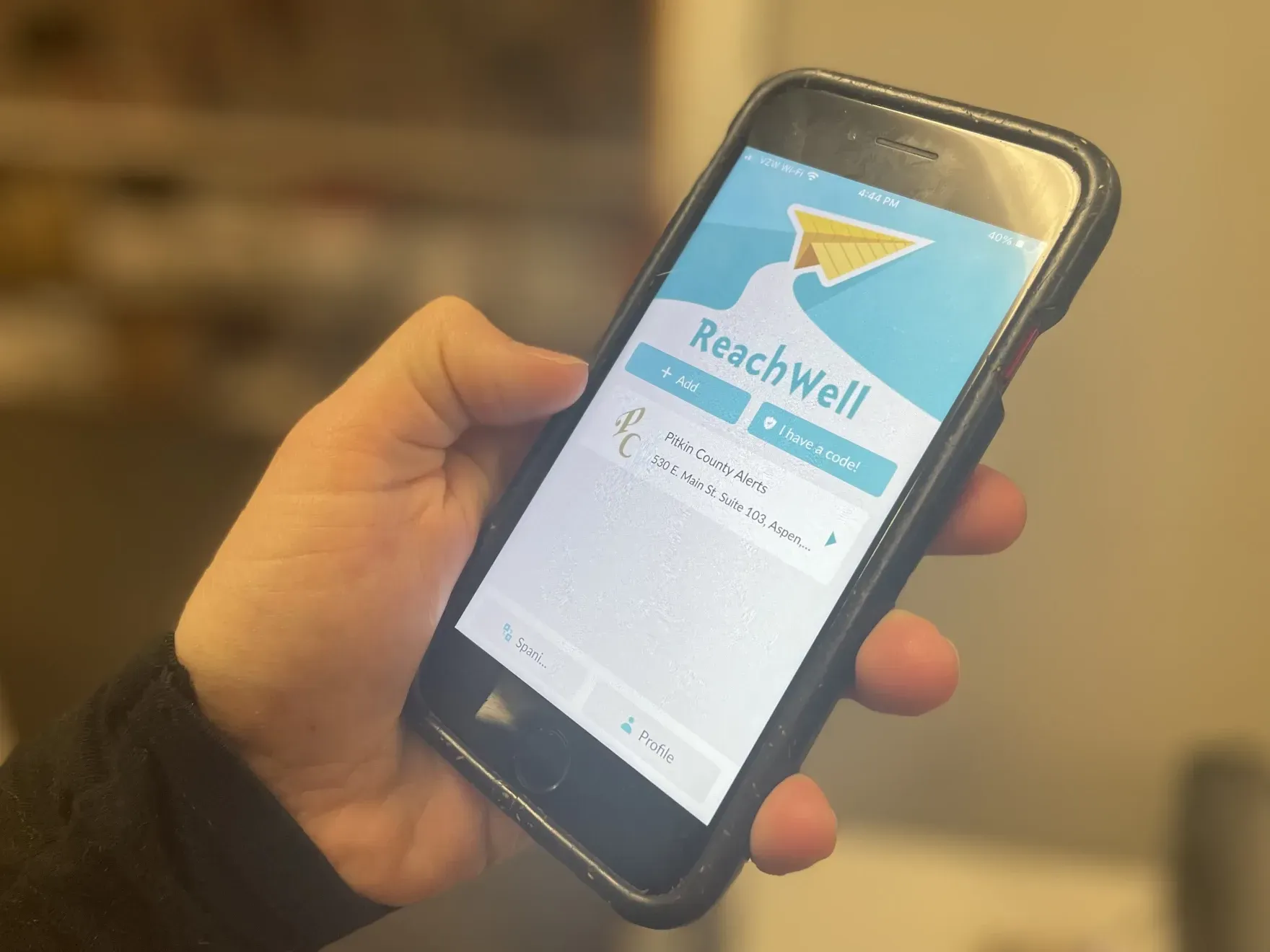
Pitkin County unveiled a new app on Jan. 25 that will deliver Pitkin Alerts in 100 languages.
Until now, the alerts from Pitkin County’s dispatch center have been delivered in English with occasional Spanish translations.
Despite a few hiccups during the rollout, the ReachWell app is now functioning and sending alerts using an artificial intelligence translation system.
Brett Loeb runs the dispatch center and Valerie MacDonald is the county’s emergency manager.
They spoke with Halle Zander on Monday.
Zander: What kind of marketing is the department going to do to get this word out?
MacDonald: The way I look at it is it will be a slow roll out and go on forever, much the same as what we do with Pitkin Alert. We will be doing a multi-media campaign for this. I'm working with a marketing company right now to create, just, really some simplistic messaging, but also it's going to be word of mouth quite a bit. We're talking to a lot of the Latino advocacy groups in the valley and getting their input on how we should reach out. I mean, there's obvious venues: the newspapers that have a Spanish speaking section in the paper, radio ads on Tricolor. There's a multitude of things we'll do on social media as well, but it's going to be an ongoing effort.
Zander: Going from one language, sometimes two, at Pitkin Alerts to one hundred different languages is a big leap. Have you had requests from people asking for Pitkin Alerts in languages other than English and Spanish?
Loeb: Yeah, we haven't had as much here in Pitkin. But some of our partners down in Garfield County, we were talking to them about it, and their language that's most often used next to Spanish was very surprising. It's Mandarin Chinese. We hadn't even thought about Mandarin Chinese, but with this we don't really have to worry about it as much anymore. It's out there and people can select whatever language they like, and we're going to put in Spanish on every Pitkin Alert we send out in English that people can receive this in Spanish through the ReachWell app. So every Pitkin Alert that goes out, hopefully, you know, if they're looking for a Spanish translation, they will see how to get there right on the alert.
Zander: Okay, and that's a good point. So you all have in the past translated some of your alerts into Spanish. The Spanish was always just right below the English. Is that still going to happen?
Loeb: Yes, for the alerts that we have time to prepare and to put the translation in. So some of our common ones, which are not common anywhere else but here, like the avalanche mitigation…those are things that we can plan ahead of time, have a translation ready to go and just send out with the English version. The ones that happen, you know, as they're happening, we don't have time to put a translation on. Those are the ones that we're going to push through the app.
Zander: Such as wildfires, flash floods, right?
Loeb: Yeah, all the other stuff that people want to know about. There's no way to prepare for those.
Zander: Why did you all decide to go in the direction of an app like ReachWell, as opposed to maybe hiring somebody on staff to do these translations in real time?
Loeb: Really, it comes down to the time, you know. It's taking us a long time to add that extra step, if you will, in emergencies. And what ends up happening is, as we're trying to make it more accessible for everybody, it actually delays getting important information out. So with this solution, the dispatchers can just craft their message in English, type in English, send it out as usual, and everything else happens behind the scenes automatically.
MacDonald: One of the pillars of emergency management is making sure that we're all inclusive and equitable in getting out emergency information. It's just critical that we put that out quickly and accurately. And the process Brett was just describing is cumbersome. I mean, believe me, we try so, so hard, but it just wasn't a perfect system. And with ReachWell, I feel like we will solve that problem in an emergency. Details matter if we're putting out messaging that isn't great because of the translation quality, we could have made the situation worse than if we put nothing out.
Zander: And, so, that's kind of where I was going next. Brett, you told me a story about an “ice jam” release and how Google Translate a few years back translated that to “marmalade” in Spanish. If an inaccurate translation were to go out on Pitkin Alerts, would you all be aware of that? Would it have to be reported from someone who gets those alerts? And how would it be addressed?
Loeb: All of our folks are subscribing and would see it, but from my experience, really, with these alerts, somebody is going to let us know pretty quick. The community actually is extremely savvy with public safety messaging, with being involved. And when we make a mistake or when something just isn't right, it's very quick usually that we understand that there was something that went out wrong.
MacDonald: Just the lead up to us going live with the system, we did put together a test group with many people throughout the valley. And we sent out numerous Pitkin Alerts over the ReachWell app to that group. We wanted to test for ease of downloading and then also the translation accuracy because we’ve dealt with that in the past, and everyone thought it was vastly improved. It's just another tool or another resource in our toolbox.
Zander: So this would be a good option for people who are not comfortable sharing their information on a government website. So is this app an explicit effort to reach the undocumented population in the Roaring Fork and Colorado River valleys?
MacDonald: I believe that's one of the major advantages. People do not have to sign up on a government website. And while I don't have specific data on the numbers, I know that that population exists in this valley. Some people just don't want anything to do with government, so this takes away that barrier.
Zander: So I signed up for the app on Wednesday, and as you said, there were a number of Pitkin Alerts that were sent out this weekend. I haven't received any alerts from ReachWell yet. Is it supposed to be live at this time?
Loeb: We did a lot of testing before launch and we went live with it, and we didn't have any alerts come out until Saturday night that would have gone out on ReachWell. And then we realized there was one step missing, so we've corrected that as of today.




